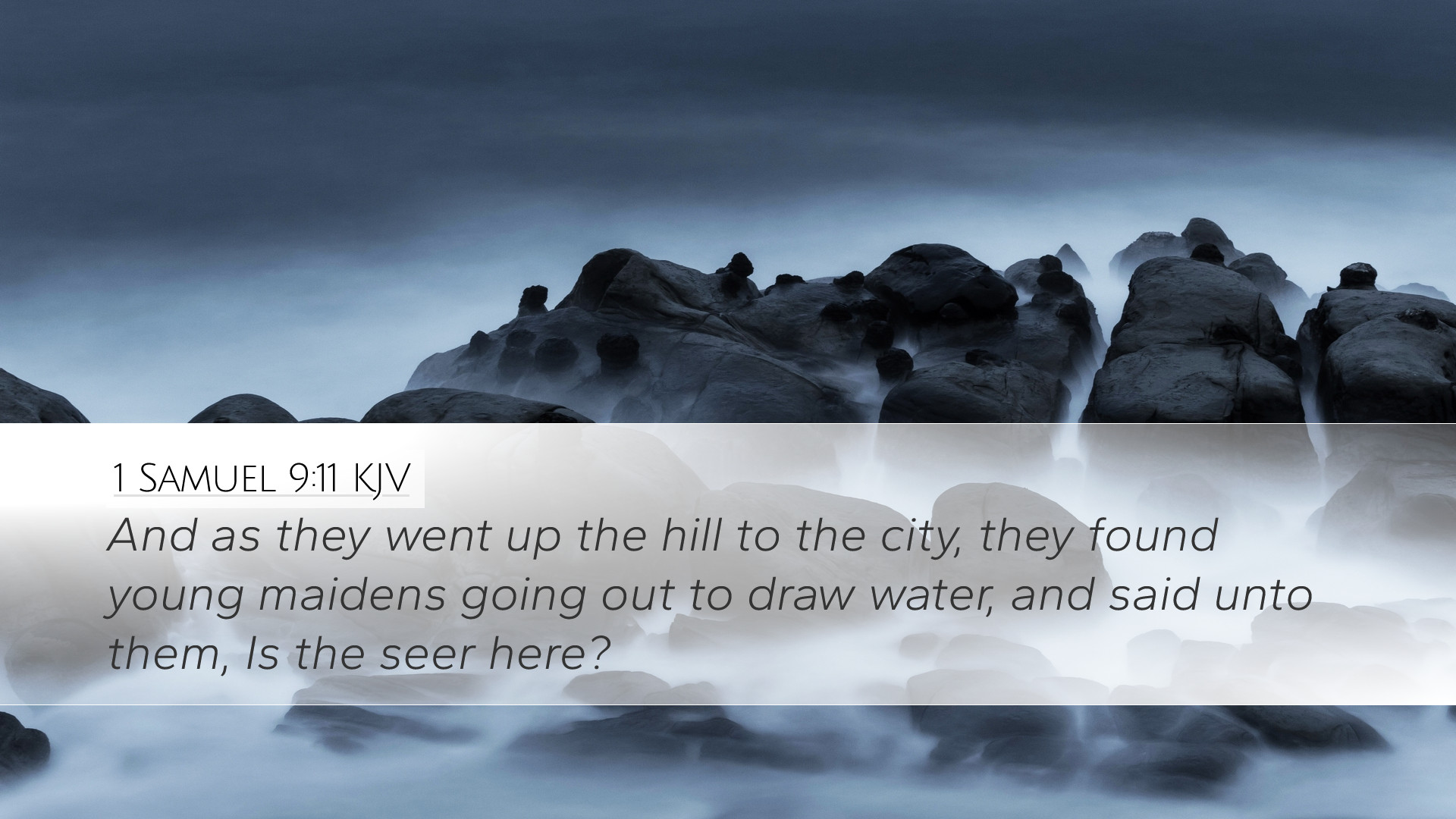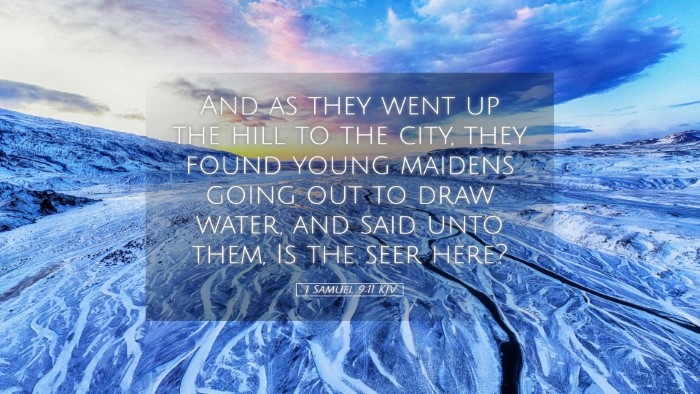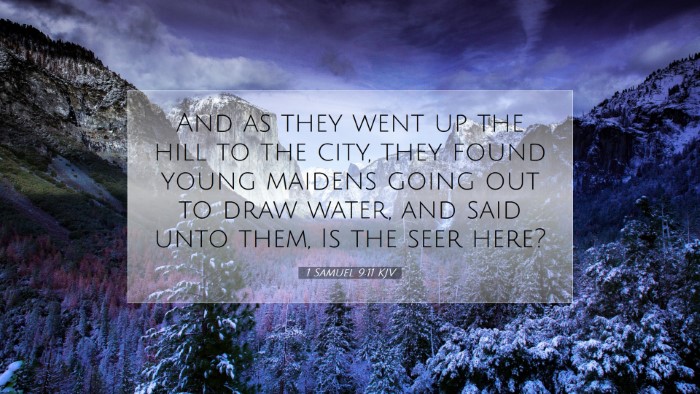Commentary on 1 Samuel 9:11
1 Samuel 9:11 states: "As they went up the hill to the city, they found young women going out to draw water, and said to them, 'Is the seer here?'
Introduction
This verse serves as a pivotal moment in the narrative of Saul's anointing as king. The encounter between Saul and the young women provides a rich context to explore themes of guidance, the role of prophetic insight, and the unfolding of God's plan among His people. The commentaries from Matthew Henry, Albert Barnes, and Adam Clarke elucidate these themes and offer valuable insights for pastors, theologians, and students of the Bible.
Contextual Background
1 Samuel recounts a transitional period in Israel's history, moving from the leadership of judges to the monarchy. Saul, a Benjamite, is on a quest to find his father's lost donkeys, but God has a greater purpose in directing Saul's steps towards Samuel. The context of this passage marks the beginning of Saul's journey toward kingship.
Matthew Henry's Commentary
According to Matthew Henry, this passage highlights God's providence in guiding those who seek Him. The young women, characterized by their role as water-drawers, symbolize both the mundane aspects of life and the divine encounter awaiting Saul. Henry emphasizes that the act of asking about the seer reflects a broader spiritual hunger among the people of Israel, indicating their yearning for guidance amidst a time of chaos.
Albert Barnes' Insights
Albert Barnes provides further depth by analyzing the significance of the term "seer." At this time, God communicated His will through individuals set apart for divine purposes, and the seer represented a vital channel of God’s revelation. Barnes argues that Saul’s interaction with these women illustrates the common societal practice of seeking prophetic wisdom during times of decision-making. The query about the seer reflects a deep-seated belief in the importance of divine guidance, especially in critical moments of life.
Adam Clarke's Analysis
Adam Clarke offers a historical and cultural perspective, noting that women drawing water was a common sight in ancient Israel. This act is laden with symbolic meaning; water, a life-giving substance, can be viewed as representative of spiritual sustenance. Clarke points out that by directly inquiring of the women, Saul unwittingly steps into a divine appointment, positioning himself at the threshold of a significant transformative experience that will not only alter his trajectory but the future of Israel.
Thematic Exploration
This encounter at the well encourages a thematic exploration of the following concepts:
- Divine Guidance: The passage exemplifies how God guides individuals towards their destiny, often through seemingly mundane interactions.
- The Role of Women: The presence of the young women symbolizes the integral role of women in the narrative of scripture and God's plan.
- Seeking Prophetic Insight: This verse urges believers to consider the importance of seeking God’s guidance in uncertain times.
1. Divine Guidance
The notion of divine guidance throughout scripture is a recurring theme. Saul's journey, although initiated by a practical quest, leads to a divine encounter. This interplay invites readers to reflect on their own life's journey, recognizing how God often leads through ordinary circumstances to fulfill His extraordinary purposes.
2. The Role of Women
The women at the well serve as more than mere background characters; they represent community, hospitality, and the mundane tasks through which divine providence operates. Their inclusion in the narrative underscores the value of all individuals in God’s design, calling attention to the ways God uses people in their everyday lives to accomplish His will.
3. Seeking Prophetic Insight
The anxious inquiry of Saul reveals an underlying desire for guidance that resonates with many today. In a climate filled with uncertainty and questions, the act of seeking prophetic insight highlights the need for wisdom beyond one's own understanding. This verse encourages present-day believers to actively seek God’s voice through prayer, scripture, and community.
Conclusion
1 Samuel 9:11 encapsulates a moment of divine orchestration in which God leads Saul into his destiny. Through the combined insights of Matthew Henry, Albert Barnes, and Adam Clarke, it is evident that this text holds significance for both historical understanding and contemporary application. For pastors, theologians, and students, the profound themes of guidance, the role of community, and the pursuit of divine insight render this passage a rich source for reflection and teaching.


